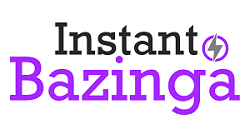Discovering that your child may be using drugs is a terrifying thought for any parent. However, early detection and intervention are crucial in addressing and mitigating potential issues. Understanding the signs of drug use can help parents take the necessary steps to support their child. This article will outline the common indicators of drug use and provide guidance on how to address this sensitive issue.
Physical Signs
- Sudden Weight Changes: Unexplained weight loss or gain can be a sign of drug use. Stimulants like cocaine and methamphetamine often cause weight loss, while marijuana can lead to weight gain due to increased appetite.
- Bloodshot or Glazed Eyes: Drug use can affect the eyes, making them bloodshot or glazed. Pupils may also be unusually large or small, depending on the type of drug used.
- Poor Hygiene: Neglecting personal grooming and hygiene can be a red flag. This may include not bathing regularly, wearing dirty clothes, or having bad breath and body odor.
- Unusual Smells: Drugs often have distinct odors. The smell of smoke, chemicals, or a sweet scent can indicate drug use. Additionally, some users may try to mask these smells with strong scents like perfume or incense.
- Track Marks and Bruises: Injection drug use can leave visible marks on the body, often on the arms. Look for bruises, track marks, or unexplained skin infections.
Behavioral Signs
- Changes in Academic Performance: A sudden drop in grades, loss of interest in school activities, and frequent absences can be signs of drug use. Drug use can impair cognitive functions and motivation, leading to poor academic performance.
- Secretive Behavior: If your child becomes unusually secretive, starts locking their doors, or hides their phone and activities, it might be cause for concern. They may also start avoiding eye contact and become defensive when questioned.
- Changes in Social Circles: Pay attention to changes in your child’s friend group. If they start hanging out with new friends who have a bad reputation or if their old friends express concern, it could be a warning sign.
- Loss of Interest in Hobbies: A child using drugs may lose interest in activities they once enjoyed. This can include hobbies, sports, and other extracurricular activities.
- Increased Need for Money: Drug use can be expensive. If your child is constantly asking for money without a clear explanation, or if you notice missing money or valuables, it could indicate drug use.
Psychological Signs
- Mood Swings: Sudden changes in mood, such as unexpected outbursts of anger, irritability, or excessive happiness, may indicate potential drug use. The influence of drugs on an individual’s emotions and actions can be profound.
- Anxiety and Paranoia: Drugs can induce feelings of anxiety, paranoia, and fear. If your child exhibits these symptoms without a clear cause, it might be related to drug use.
- Depression: Prolonged emotions of sorrow or hopelessness could be associated with drug use. In particular, depressants may have the ability to trigger or exacerbate symptoms of depression.
- Lack of Motivation: A child using drugs might show a lack of motivation or energy for daily activities. They may appear lethargic and disinterested in their responsibilities.
Steps to Take if You Believe Someone is Using Drugs
Communicate: It is important to handle your child with sensitivity and empathy. Instead of making accusations, approach them with care and express your concerns in a calm manner. Take the time to listen to their perspective and make an effort to understand their side of the story.
Support Sobriety: Support and motivate your child as they strive to overcome drug addiction. Create a nurturing atmosphere and explore resources that can aid in maintaining a drug-free lifestyle. For example, if alcohol consumption is a worry, you may consider exploring Soberlink Reviews. This innovative device assists in monitoring alcohol intake and can serve as a valuable asset in promoting sobriety. Soberlink is an advanced alcohol monitoring device that uses real-time breathalyzer technology to help individuals maintain sobriety. It provides accurate results and offers accountability through detailed reports and alerts.
Seek Professional Help: If you have concerns about or verify drug usage, it is advisable to seek assistance from a healthcare practitioner, counselor, or addiction expert. These professionals can offer valuable advice regarding the most suitable steps to take and available treatment alternatives.
Set Clear Boundaries: Establish and enforce clear rules about drug use. Explain the consequences of breaking these rules and follow through consistently.
Educate Yourself: Learn about the specific drugs you suspect your child is using. Understanding the effects, risks, and signs of these substances can help you better address the issue.
Conclusion
Recognizing the signs of drug use in your child can be challenging but crucial for their well-being. By staying vigilant and proactive, parents can intervene early and provide the necessary support and guidance. Open communication, professional help, and a supportive environment are key components in helping your child overcome drug use and lead a healthy, fulfilling life.




